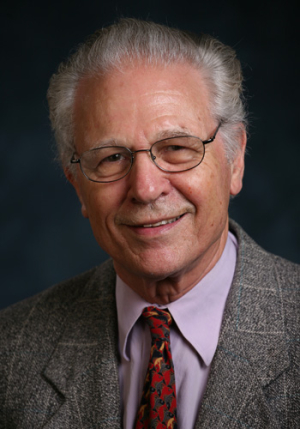Dan Luss, Cullen Professor of Engineering in the Department of Chemical & Biomolecular Engineering, won the 2005 Best Fundamental Paper Award from the South Texas Section of the American Institute of Chemical Engineers.
The Cullen College of Engineering professor won the award for the paper “Stationary Transversal Hot Zones in Adiabatic Packed-Bed Reactors,” which was coauthored by Ganesh Viswanthan, Aditya Bindal and Johannes Khinast and published in the AIChE Journal.
The paper addresses a safety problem encountered in industrial chemical reactors. Many commercial chemical reactions are conducted in packed-bed reactors, which are large cylindrical vessels filled with catalytic pellets. These reactors convert a gas or liquid to a desired product. For example, they are used to transform natural gas to polymers or harmful pollutants into harmless chemicals.
Many of the reactions carried out in packed-bed reactors release large amounts of heat, which increases the temperature in the reactor. While the temperature in the reactor typically rises gradually from one end to the other, occasionally some areas, known as hot zones, experience extremely high spikes in temperature.
When hot zones form next to reactor walls, they can decrease the metal strength of these walls. This weakening can lead to the formation of cracks in the walls and the release of high-pressure reactants to the atmosphere, causing an explosion. “That safety hazard is what industrial practitioners worry about,” said Luss.
Hot zones usually measure just a few centimeters, making them very difficult to detect when they are next to reactor walls. In this paper, Luss and his colleagues subsequently explored the reactions and operating conditions that lead to their formation. If these factors are understood, said Luss, methods can be developed to prevent hot zones from forming in the first place.
It is well known that hot zones may appear in a reactor if it is packed with catalyst pellets that have non-uniform activity or if the catalyst is not packed uniformly throughout a reactor.
In the paper, Luss and his colleagues showed for what class of reactions these hot zones will not form in a reactor that is uniformly active. Moreover, they discovered a class of reactions and catalysts for which they may form. This class includes the oxidation of carbon monoxide and various hydrocarbons over catalysts containing platinum.
The Best Paper Award will be presented at a dinner hosted by the South Texas section of the AIChE in Houston on Oct. 5.
